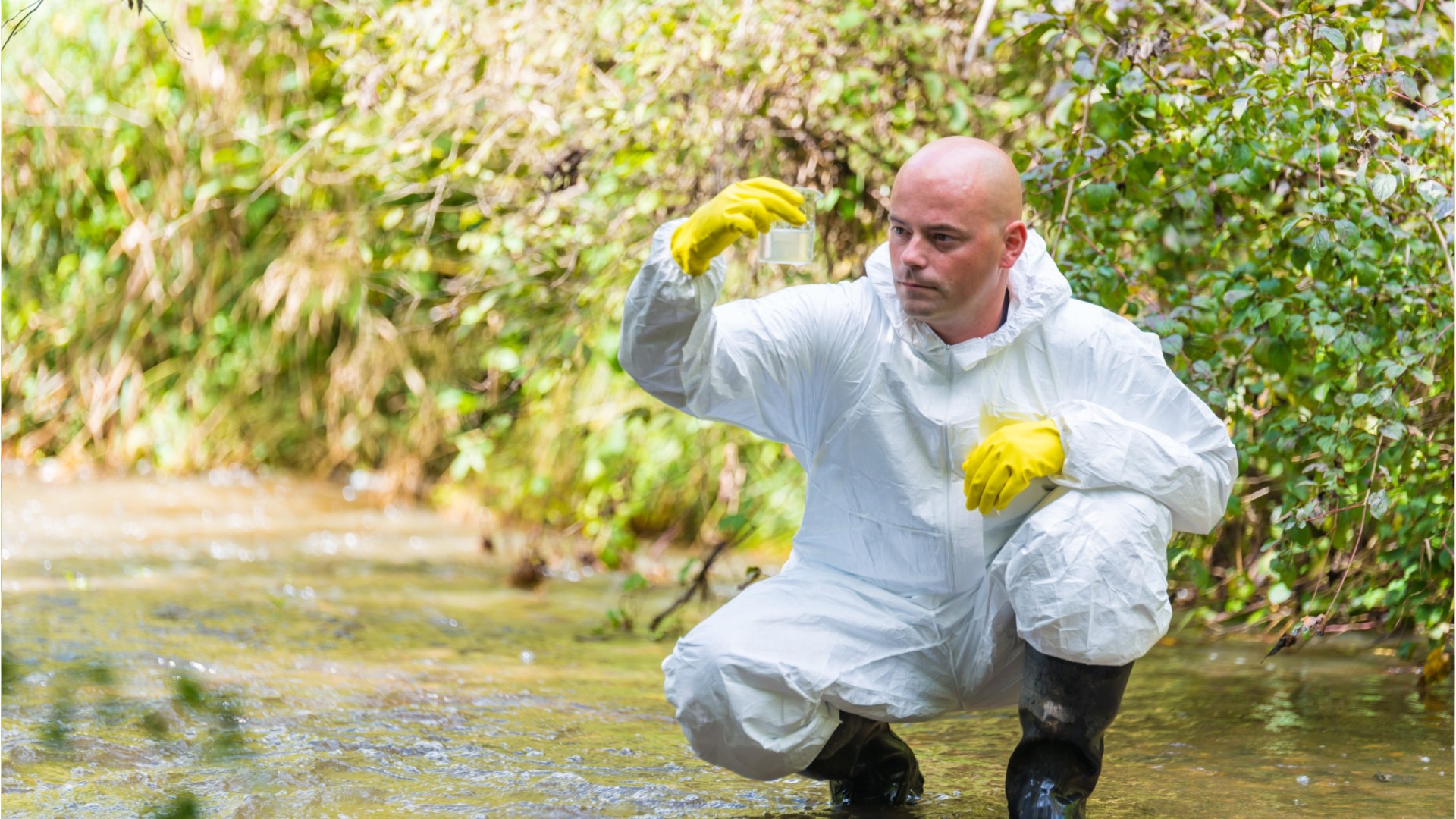Environmental Science & Protection Technicians, Including Health
Environmental Health Officer (EHO), Environmental Technician (Environmental Tech), Sanitarian, Soil Lab Technician (Soil Laboratory Technician)
 Select a military branch to see samples.
Select a military branch to see samples.
Aerospace Medical Service; Aerospace Medical Service Apprentice, Neurodiagnostic Medical Technician; Aerospace Medical Service Helper; Aerospace Medical Service Journeyman; Bioenvironmental Engineer; Bioenvironmental Engineering; Dental Assistant Apprentice; Emergency Management Apprentice; Health Services Management Craftsman; Public Health Apprentice
Chemical, Biological, Radiological, and Nuclear (CBRN); Chemical, Biological, Radiological, and Nuclear (CBRN) Specialist; Environmental Science and Engineering; Food Safety Officer; Medical Service Corps Officer; Preventive Medicine Sciences; Preventive Medicine Specialist; Veterinary Biomedical Scientist; Veterinary Corps Officer
Health Services Technician; Marine Environmental Response; Marine Safety Specialist Engineer; Marine Safety Specialist Response; Marine Science Technician; Medical Administration Specialty; Safety and Environmental Health
Chemical, Biological, Radiological and Nuclear (CBRN) Defense Chief; Chemical, Biological, Radiological and Nuclear (CBRN) Responder; Chemical, Biological, Radiological, and Nuclear (CBRN) Defense Specialist; Environmental Engineering Management Officer; Hazardous Material/Hazardous Waste (HM/HW) Officer; Hazardous Material/Hazardous Waste (HM/HW) Staff Noncommissioned Officer/Noncommissioned Officer
Aerospace Physiologist; Disaster Preparedness Officer; Environmental Health Officer; Hospital Corpsman; Preventive Medicine Officer (Aerospace); Preventive Medicine Officer (Occupational); Radiation Health Officer; Radiation Specialist; Safety Engineer; Special Warfare Operator
No similar titles were found.
What they do:
Perform laboratory and field tests to monitor the environment and investigate sources of pollution, including those that affect health, under the direction of an environmental scientist, engineer, or other specialist. May collect samples of gases, soil, water, and other materials for testing.
On the job, you would:
- Collect samples of gases, soils, water, industrial wastewater, or asbestos products to conduct tests on pollutant levels or identify sources of pollution.
- Investigate hazardous conditions or spills or outbreaks of disease or food poisoning, collecting samples for analysis.
- Record test data and prepare reports, summaries, or charts that interpret test results.
Knowledge
Business
- customer service
Arts and Humanities
- English language
Math and Science
- chemistry
- biology
Safety and Government
- law and government
Skills
Basic Skills
- reading work related information
- listening to others, not interrupting, and asking good questions
Problem Solving
- noticing a problem and figuring out the best way to solve it
People and Technology Systems
- thinking about the pros and cons of different options and picking the best one
- figuring out how a system should work and how changes in the future will affect it
Abilities
Verbal
- communicate by speaking
- listen and understand what people say
Ideas and Logic
- use rules to solve problems
- make general rules or come up with answers from lots of detailed information
Math
- add, subtract, multiply, or divide
- choose the right type of math to solve a problem
Visual Understanding
- see hidden patterns
Personality
People interested in this work like activities that include ideas, thinking, and figuring things out.
They do well at jobs that need:
- Cautiousness
- Integrity
- Attention to Detail
- Dependability
- Intellectual Curiosity
- Adaptability
Technology
You might use software like this on the job:
Geographic information system
- ESRI ArcGIS software
- ESRI ArcView
Video creation and editing software
- YouTube
Analytical or scientific software
- HEC-RAS
- Visual OTTHYMO
Education
Education: (rated 4 of 5)
bachelor's degree or
associate's degree
usually needed
associate's degree
usually needed
Job Outlook
Average
New job opportunities are likely in the future.
Explore More
- Environmental Compliance Inspectors
- Environmental Engineering Technologists & Technicians
- Environmental Engineers
- Environmental Scientists & Specialists, Including Health
- Water & Wastewater Treatment Plant & System Operators
You might like a career in one of these industries:
See more details at O*NET OnLine about Environmental Science & Protection Technicians, Including Health.





